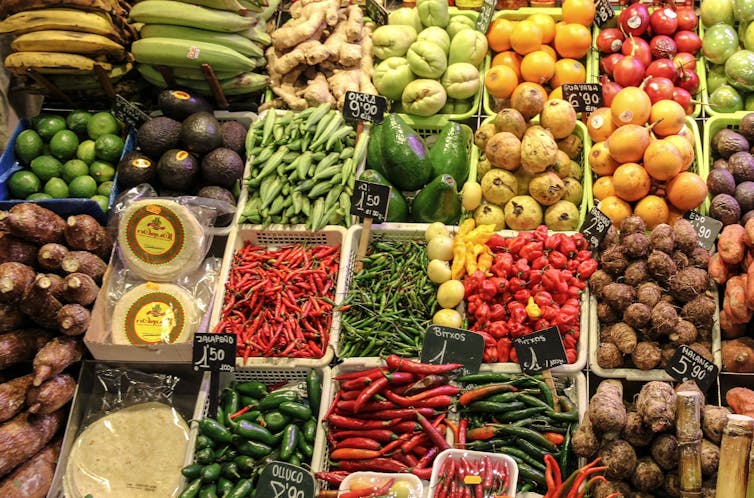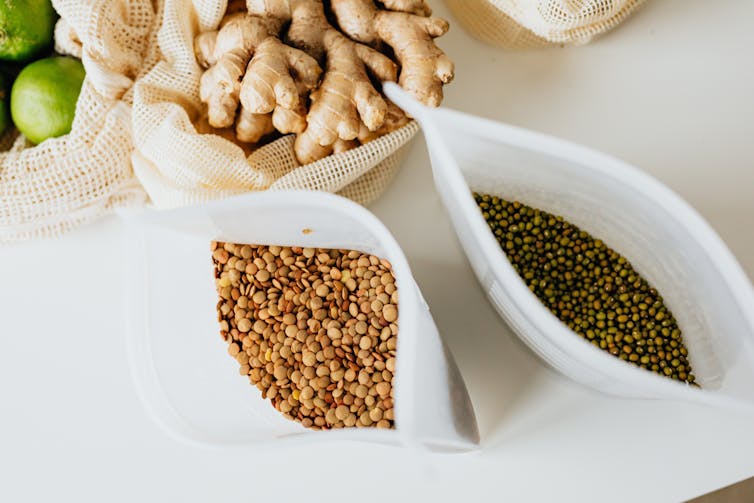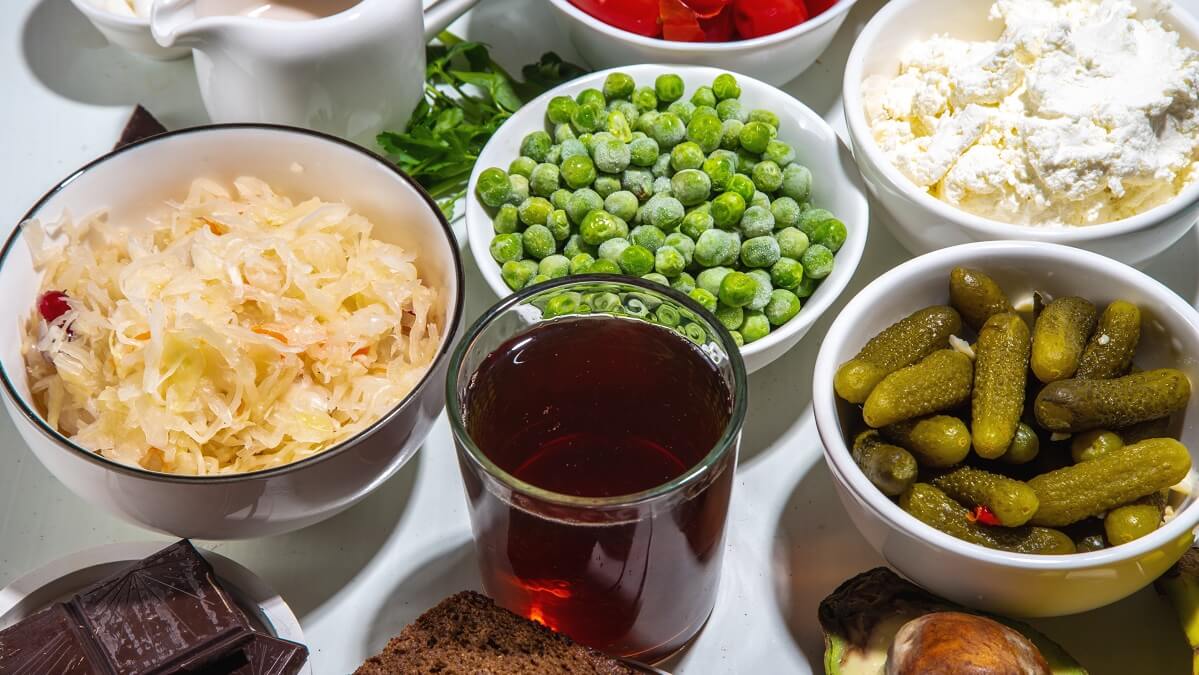Deep Jyoti Bhuyan, Western Sydney University
Many of us are familiar with probiotics, such as certain yoghurts and fermented foods, full of ‘good’ bacteria that can keep the gut healthy.
You might even have heard of prebiotics, foods rich in complex carbohydrates (dietary fibre) that help foster good bacteria in the large intestine. Popular prebiotic foods include oats, nuts and legumes.
But what about postbiotics? What are they and how do they affect our gut health?

Image by Michal Jarmoluk from Pixabay
What is a postbiotic?
Postbiotics are essentially the by-products of our gut microbiota. In other words, your body produces postbiotics after digesting prebiotic and probiotic foods.
Examples of postbiotics include the short-chain fatty acids butyric acid (or butyrate), acetic acid (or acetate) and propionic acid (or propionate).
These molecules are produced when good probiotic bacteria break down dietary fibre from foods such as fruits and vegetables, grains and legumes.
These postbiotic molecules are important for your gut microbiota. Healthy probiotic bacteria thrive on these short-chain fatty acids in our gut.
And some postbiotics can help suppress ‘bad’ bacteria. For example, probiotic bacteria (such as Lactococcus lactis) produce special chemicals called bacteriocins that can prevent the colonisation of pathogens like E. coli in the gut. This process is known as ‘colonisation resistance’.
Microbial fermentation is where microbes in the gut break down complex carbohydrates. Microbial fermentation of plant-based diets (which are rich in polyphenols), in particular, leads to the production of the postbiotic phenylacetic acid. This postbiotic can reduce the growth of harmful pathogens in the body.

Photo by Michael Burrows/Pexels
Not all postbiotics are good
Not all postbiotics are heroes, though.
One type of postbiotic is bile acids, which are produced when we eat too many high-fat foods.
Bile acids have been linked to inflammation and colon cancer.
Staying on a high-protein, low-carbohydrate diet for the long term often means people don’t eat enough fibre, which is linked to a higher risk of colon cancer.
This may be due to the production of hazardous postbiotics like bile acids.
What’s the link between postbiotics and cancer?
Our recent review (led by my colleague Kayla Jaye at Western Sydney University) found short-chain fatty acids – particularly butyrate – have shown promising results against breast and colorectal cancer cells in previous laboratory studies.
One clinical study showed colorectal cancer patients produced significantly lower levels of short-chain fatty acids in their gut than healthy participants.
Another study found the numbers of bacteria that produce short-chain fatty acids were low in premenopausal breast cancer patients.
Some cellular and animal studies have also reported that the postbiotic butyrate can help chemotherapy work better against breast cancer and regulate the immune system.
As reported in epidemiological studies, a fibre-rich diet, particularly wholegrains, can lower the risk of colorectal cancer. This is mainly because fibre-rich diets lead to the production of short-chain fatty acids in the colon.

Photo by Karolina Grabowska/Pexels
Okay great, so what do I eat to get more postbiotics in my gut?
Dietary fibre is the key.
Women and men should consume at least 25 and 30 grams of fibre, respectively, every day. But few Australians meet this recommendation.
The best way to improve the levels of good postbiotics is to consume more vegetables, fruits, legumes, wholegrain bread, nuts and seeds.
Jerusalem artichokes, garlic, onion, leek and asparagus are fantastic prebiotic vegetables.
A diet rich in fruits and vegetables increases the levels of postbiotics like short-chain fatty acids in the gut. It also helps reduce bile acids.
Gut health is all about diversity, which means eating a variety of fruits, vegetables, legumes and wholegrains to support healthy gut microbiota.
You can also include fermented foods like sauerkraut and kimchi in your diet. These fermented foods have both prebiotic fibre and live probiotic bacteria, which can help produce healthy postbiotics in the gut.
Of course, further research is needed. But to ensure good gut health, you should include plenty of fruits, vegetables and legumes in your diet.
Deep Jyoti Bhuyan, Research Fellow in Healthy Ageing, Western Sydney University
This article is republished from The Conversation under a Creative Commons licence. Read the original article.

